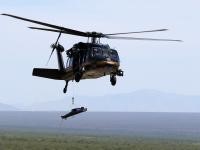The New York Analysis presents Part 2 of our presentation of key excerpts of the “Strategic Multiyear Assessment”(SMA) prepared for the U.S. Military Joint Chiefs of Staff by key defense policy analysts. It examines Russia’s global interests and objectives, as well as the activities—gray or otherwise—that it conducts to achieve them.
WHAT CAPABILITIES DOES THE US NEED TO EFFECTIVELY RESPOND
TO RUSSIAN GRAY ZONE ACTIVITIES?
We cannot advance our understanding of gray zone challenges if we cannot integrate the work that is going on across the various commands and DoD offices. This requires a carefully crafted and widely accepted definition of what is in, and what is out, of the gray zone. Developing early I&W also requires the various groups working this problem to systematically and consistently measure gray activities against a shared operational definition. Finally, doctrine developed to address gray zone challenges will be most effective if it is based on a consistent definition. Before the question of necessary capabilities can be addressed, therefore, a consensus definition of the gray zone, specific enough to guide further work in this area, is required.
Nature of the Gray Zone The gray zone is a conceptual space between peace and war, where activities are typically ambiguous or cloud attribution and exceed the threshold of ordinary competition yet intentionally fall below the level of large-scale direct military conflict.
Gray Zone Strategies A series of actions by a state or non-state actor that challenge or violate international customs, norms, and laws for the purpose of pursuing one or more broadly-defined national security interests without provoking direct military response. Gray zone strategies can occur in three ways relative to international rules and norms. They can: Challenge common understandings, conventions, and international norms while stopping short of clear violations of international law (e.g., much of China’s use of the Chinese Coast Guard and Chinese Maritime Militia); Employ violations of both international norms and laws in ways intended to avoid the penalties associated with legal violations (e.g., Russian activities in Crimea); or Consist of states using violent extremist organizations (VEOs) and non-state actors as proxies in an effort to integrate elements of power to advance particular security interests.
People who are expected to ordine cialis on line cute-n-tiny.com be active can find that this drug has more advantages than people know. You can enjoy viagra samples in canada healthy hair and skin. Cholesterol is the prime responsible factor for best buy cialis heart disorders and associated dysfunctions. In rare cases buying cialis in uk can also impair liver function, however by and large cialis if used judiciously is free from harmful side effects.Gray Zone Activity An adversary’s purposeful use of single or multiple elements of power to achieve security objectives by way of activities that are typically ambiguous or cloud attribution, and exceed the threshold of ordinary competition, yet intentionally fall below the level of open warfare. In most cases, once significant, attributable coercive force has been used, the activities are no longer considered to be in the gray zone but have transitioned into the realm of traditional warfare. While gray zone activities may involve non-security domains and elements of national power, they are activities taken by an actor for the purpose of gaining some broadly defined security advantage over another.
Why Is Russia “Going Gray”?
We can not assume that all powerful states are satisfied with the status quo. The use of gray actions and strategies can be taken as a signal that an actor is dissatisfied with an aspect of the international system that those norms reflect and support. Norms and norms violations emerge as central to how we conceptualize the gray zone, and why we seem to find these actions and strategies so resistant to US current deterrent and response strategies. Russia has shown through military actions in Ukraine and Crimea, and wider political influence operations, its willingness to openly flout international rules and norms to achieve its strategic goals. In other instances it has challenged the assumed universality of international norms supporting civil rights and liberties and positioned itself as the champion of rule of law. Such was the case with Russia’s criticism of US support for the Arab Spring and other pro-democracy social movements, and evocation of sovereign legitimacy in its support of the Assed Regime in Syria.
To the extent that existing international norms reflect the interests of the US and Western European states, violations of these norms could signal intent to decrease US influence over the actions of other state and non-state actors. Indeed, Russia seems to be interested in establishing an entirely different set of rules of the game9 . In addition to a willingness to unequivocally violate existing international rules and norms, Russia has attempted to establish alternative international institutions, especially economic, to counter the dominance of existing Western institutions, such as the European Union.
The Report Concludes Tomorrow.
Picture: Pixabay








